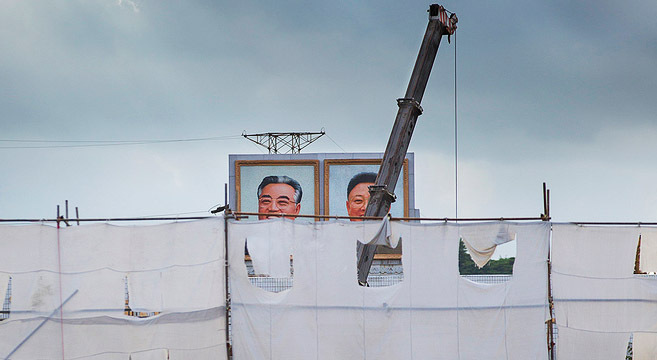When it comes to predicting North Korea’s future, a recurring theme is their impending collapse. The collapsist school of scholars, who have repeatedly predicted North Korea’s disintegration since the 1990s, were brought into being by the collapse of the Soviet Union – obviously, no one was talking about such things before 1989-90. The composition of this school has changed over time, but at any given period there are people to be found expressing such views.
Thus far such predictions have proven false: North Korea has survived against the odds, with little change in its ideology or political structure. Non-collapsist analysts might have admitted that in the long run North Korea's collapse is a likely outcome, but emphasized that this “long run” might be very long indeed.
When it comes to predicting North Korea’s future, a recurring theme is their impending collapse. The collapsist school of scholars, who have repeatedly predicted North Korea’s disintegration since the 1990s, were brought into being by the collapse of the Soviet Union – obviously, no one was talking about such things before 1989-90. The composition of this school has changed over time, but at any given period there are people to be found expressing such views.
Thus far such predictions have proven false: North Korea has survived against the odds, with little change in its ideology or political structure. Non-collapsist analysts might have admitted that in the long run North Korea's collapse is a likely outcome, but emphasized that this “long run” might be very long indeed.
Become a member for less
than $5.75 per week.
Unlimited access to all of NK News: reporting, investigations, analysis
The NK News Daily Update, an email newsletter to keep you in the loop
Searchable archive of all content, photo galleries, special columns
Contact NK News reporters with tips or requests for reporting
Get unlimited access to all NK News content, including original reporting, investigations, and analyses by our team of DPRK experts.
Subscribe now
All major cards accepted. No commitments – you can cancel any time.












